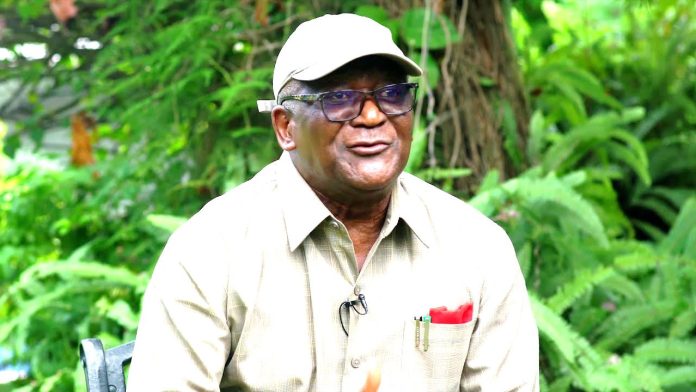The Functioning Director-General of Delta State Public Procurement Commission, Mr. Jibunma Anthony-Spinks spoke to AWELE OGBOGU on how it ensures that everything it does as a commission is in line with Governor Sheriff Oborevwori’s MORE Agenda as well as on the assurance of due diligence in procurement processes across MDAs, among sundry issues.
Excerpts….
Your commission having been in existence before the inception of the present administration, how are you re-strategizing to ensure that what you are doing is in line with the MORE Agenda?
The commission was established in 2016 with the promulgation of the Delta State Public Procurement Law 2016, which was later repealed and replaced with the Delta State Public Procurement Law 2020 to align with global best practices in the public procurement sub-sector. The MORE Agenda as you are aware consists of four key components, one of which is Realistic Reforms in governance. The commission’s mandate is in fact anchored on the Reform component of the MORE Agenda, which is basically to re-invent our public procurement processes using modern tools and technology in a manner that engenders transparency, accountability, competitiveness, inclusion and value-for-money in public spending. In other words, under the MORE Agenda, it is no longer ‘business as usual’. Every single penny is accounted for and the impact on Deltans is positive and verifiable.
What can you present as your scorecard since becoming the Functioning DG of the commission and what more can you offer should you be given a chance as substantive DG?
From the inception of the present administration under the leadership of His Excellency, Governor Sheriff Oborevwori, our focus at the commission has been first and foremost to market the procurement reform policy to the procurement community, particularly civil servants and government officials directly involved in the procurement process. So, our strategy has three prongs namely, advocacy, advocacy and advocacy.
Physical interaction and interface with the MDAs and stakeholders is key. People have to buy in and then take ownership of the MORE Agenda. With this approach, we have recorded a considerable level of awareness of the Procurement Law and guidelines, which in turn has resulted in remarkable improvement in implementation by the various MDAs in Delta State. As for appointment into a higher office, our attitude at the commission is to allow our work to speak for us.
What is the level of compliance with the Procurement laws by MDAs?
As cynical as it sounds, some people say that “laws are meant to be broken”, especially new laws; but that is far from the truth. However, reforms could be problematic to implement if there is initial resistance. But just as I said, through advocacy, sensitization and synergy with stakeholders, we have seen remarkable improvements in compliance since the coming on board of the present administration in the state.
What is the scope of the commission’s powers and operations?
We are basically a regulatory body on all matters relating to public procurement in the state. So the Delta State Public Procurement Law as specified in Part IV Section 21 is applicable to all procurement of goods, works and services carried out by the MDAs and all procuring entities in government. By procuring entities, we are talking about the executive, legislature and the judiciary. Not left out are Boards, parastatals, schools, law courts, tertiary institutions, hospitals and local government councils.
Can you explain the procedures for Procurement?
Absolutely. Public Procurement is actually a cycle with a sequential pattern beginning from the first point where the procuring entity carries out a needs assessment. Simply put, before you spend public funds, you must ask a basic question ‘what are the needs and priorities of the citizens for whom you are embarking on the procurement activity?’ So if at the end of the procurement process, the citizens are not positively imparted, then there is a problem with that process. If a community is about to be washed away by flood, you can’t begin to build a market there because the flood will also wash it away. So you have to deal with the flood first especially in the face of competing demands and limited public resources. Our people say, if you buy a lantern for a blind man, you are mocking him because you should know he doesn’t need it.
Give us details of the commission’s strategic work plan (2024-2025) and what is the success level?
Our strategy is based on the principle of simplicity and result. Firstly, we have our jobs cut out and that is basically to ensure strict implementation of procurement laws and guidelines, focusing first on capacity building.
We identify relevant projects and programmes, we determine short, medium and long term deliverables, we determine delivery targets and timelines as well as quarterly performance milestones where we review our performance alongside the feedback we are getting from end-users. For example, our target on e-Procurement reforms is that by the first quarter of 2025, we would have migrated a minimum of 75% of MDAs from the manual procurement process to our e-Procurement and OCDS Online procurement database and by the second quarter all MDAs would have come on stream.
Is there any foreign collaboration by the commission to achieve set goals?
In the last three years, the commission, alongside other key MDAs in the state, has been actively involved in driving the procurement and budget reform policies of the state government in collaboration with the World Bank, the Federal Ministry of Finance and the Nigerian Governors Forum; and Delta State is one of the best-performing states under the programme out of the participating states in the country.
Are there any challenges and what are your future prospects?
With the present general downturn in the economy of the entire country, of course there are challenges, but we see the challenges as a stepping stone for more deliverables. With the support we are getting from the state government and the rising tempo of the MORE Agenda, the future is here and is very bright indeed.


